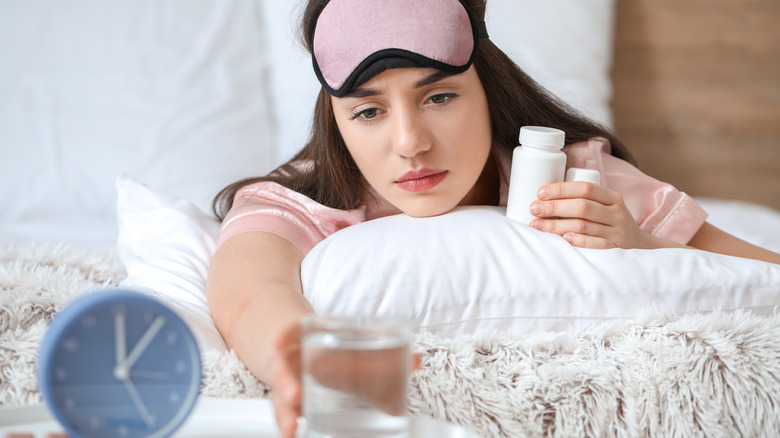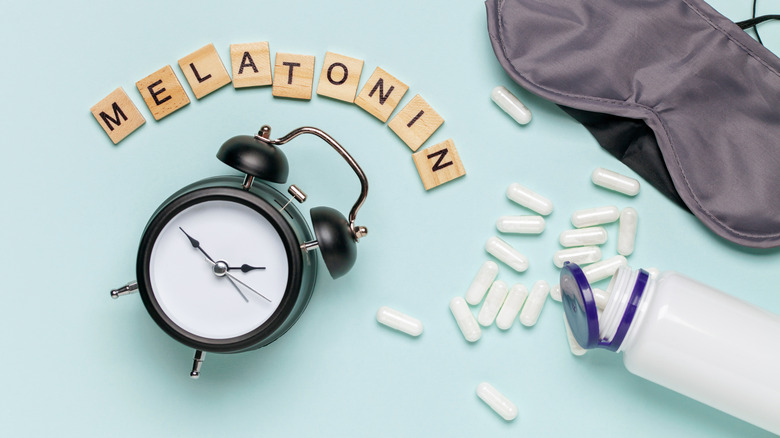Melatonin Or Benadryl? Health Digest Survey Reveals The Most Popular Over-The-Counter Sleep Aid
According to the American Sleep Apnea Association, an estimated 50 to 70 million people in the U.S. have trouble sleeping. In fact, almost three-quarters of American adults say they get an inadequate amount of sleep at least once a month, while 11% of adults say they don't get enough sleep on a nightly basis. It is recommended that the average adult between 18 and 60 years of age receive at least 7 hours of sleep each night, as per the U.S. Centers for Disease Control and Prevention (CDC). With so few of us getting adequate sleep, some individuals have turned to sleep aid products to help them snooze more soundly.
A 2019 study published in The American Journal of Geriatric Psychiatry found that both prescription and nonprescription sleep aid drugs were being utilized by over 35% of seniors. Between the two options, however, over-the-counter (OTC) and herbal sleep aids were found to be the most popular choices amongst those 65 to 80 years old. Additionally, a 2021 survey conducted by SingleCare found that out of 2,000 respondents, over 40% used some form of a sleep aid. Of these, about 20% utilized natural vitamins or supplements, while 8% reported using over-the-counter sleep aid drugs. Benadryl and melatonin are just two of the many sleep aids available on the market. To find out which products are most popular amongst our readers, Health Digest conducted a survey to determine the most preferred sleep aid — but is it melatonin, or Benadryl?
Majority of survey respondents voted in favor of melatonin
Of 583 survey respondents, melatonin was the #1 preferred over-the-counter sleep aid, with 295 people saying it was their favorite option, or 50.6% of the votes. That's in comparison to 20.93% of participants who voted in favor of Benadryl (122 votes). Although melatonin and Benadryl occupied 1st and 2nd place, some respondents voted in favor of different sleep aids altogether. 85 votes were cast for chamomile, accounting for 14.58% of survey answers. 45 people opted for valerian — a total of 7.72%. In last place came Unisom, selected by 6.17% of participants as their preferred sleep aid (36 votes).
Although many sleep aids can be obtained over the counter, it doesn't mean they're entirely without potential risks. "You tend to become tolerant of the effect relatively quickly, so they stop working for you. And we don't have a lot of long-term data about what happens if you use them for long periods of time," sleep expert Dr. Lawrence Epstein tells Harvard Health Publishing. Dr. Epstein goes on to describe how certain OTC sleep aids containing antihistamines (such as Unisom) may pose some unique risks. "There is the potential that antihistamines may cause side effects in older adults, such as confusion and falls," Dr. Epstein tells the publication. Therefore, if you're thinking about trying an OTC sleep aid product, consider consulting with your doctor beforehand.


